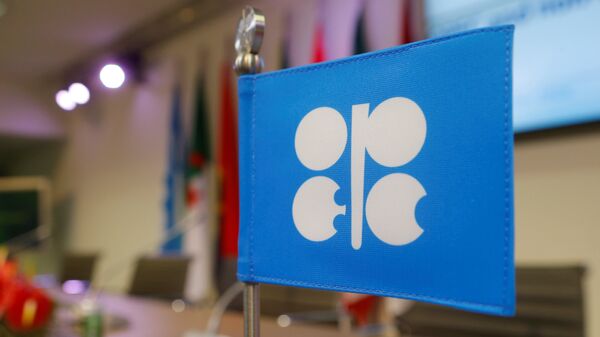On Sunday, the first meeting of the group took place, with technical experts meeting in the form of a Joint Technical Committee (JTC) to calculate compliance with oil production cuts.
The next day, a Joint OPEC-Non-OPEC Ministerial Monitoring Committee (JMMC) will take place in the morning followed by a meeting among the 14 countries of OPEC, at the end of which a recommendation by the JMMC on how to proceed with the deal taking into account market conditions and the decision by the 14-member group on the fate of the accord is expected.
However, only on 2 July, after meeting with the 10 non-cartel producers, including Russia, will OPEC officially announce the group’s decision.
On 7 December, participants of the OPEC+ oil output cut deal, which has been in force since 2017, agreed to reduce overall production by 1.2 million barrels per day but only in the first half of 2019. OPEC member states pledged to cut production by 800,000 barrels per day, while non-OPEC countries agreed to reduce it by 400,000 barrels per day.
Moscow, Riyadh Agreed to Extend
The main intrigue of the 1-2 July meetings has been somewhat subsided by Russia and Saudi Arabia’s announcement after the G20 meeting in Osaka about their aligned position to extend the cuts with current production levels by six-nine months.
However, the length of the extension is still unclear, with sources telling Sputnik the deal could be prolonged until the end of the year with an option to extend it by a further 3 months if needed based on market fundamentals.
"It seems more expedient for us to go through the winter period also within the framework of the agreement, that is, to be closer, probably, to nine months, because it is difficult to get out of the deal when demand falls in winter ... Therefore, it is most likely more expedient to extend the deal for nine months", Russian Energy Minister Alexander Novak told reporters in Osaka.
For his part, Saudi Energy Minister Khalid al-Falih also backed the 9-month extension and argued the market did not need deeper cuts from the group.
Trade Wars Slowing Decision
Moreover, OPEC+ is facing difficulties about deciding a course of action due to two polar forces in the market. On one hand, crises in Libya and Venezuela, as well as US sanctions on Iran limit oil supply, while, on the other hand, US-China trade wars are slowing down the global economy and, in turn, oil demand growth.
"How would I characterise today’s market outlook? To be frank, the picture is quite foggy ... The growing trade dispute between the same two leading global economic powers is casting a shadow on the global economic outlook. It is critical that we don't make hasty decisions, given the conflictive data, the complexity of all and the evolving situation", Falih said at the last JMMC meeting in Jeddah.
While both OPEC and non-OPEC countries have been meeting since late 2016 in an effort to deal with the production glut and shore up prices, in Vienna, they are expected to finalise a deal to create a permanent alliance for long-term cooperation.



